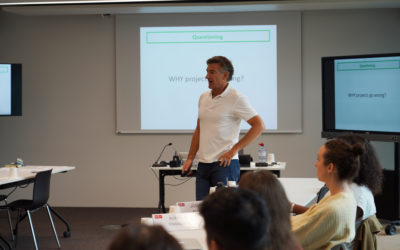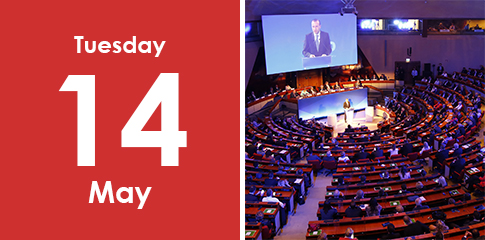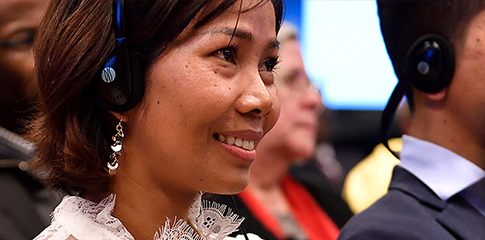Crises facilitate change: they remove obstacles which, in normal times, favour the status quo. Crises often strengthen existing trends which may have been slowed down by institutional inertia or political resistance. An event of the magnitude of the COVID-19 crisis is likely to have serious consequences in domestic as well as international politics. What will it mean for global governance? Which tendencies is it going to reinforce, which ones will it weaken?
Little on this can be said with any certainty, especially because much depends on events impossible to predict – events related directly to the crisis (how long will the crisis last where, how strongly will it affect which countries?) but also others (will Xi Jinping’s position remain strong, will Donald Trump be reelected in November?). Yet even if what follows involves an element of speculation, likely scenarios appear rather gloomy. Six conjectures:
Resource crunch. One of the most immediate consequences of the crisis will be a sudden rise in the level of public debt, due to the economic rescue and stimulus programmes countries are scrambling to put together, worth billions, even trillions of dollars or euros. In the years to come, governments will have to service an enormous debt burden – on top of the burden many still carry as a result of the financial crisis a decade ago (or from before). Once the immediate crisis with its exceptional turn to the state is over, many governments will enjoy little financial marge de manoeuvre and their attention is likely to stay inwards rather than outwards. International organizations, already subject to underfunding, will have to make do with yet more limited means – at a time when many more countries, especially in the Global South, will need help.
Anti-internationalism. Even if they disagree about the length and depth of it, economists agree that a recession is coming, and probably a deep one with a substantial rise in unemployment. In the past decade, frustrations from economic downturns have often found expression in populist politics – typically right-wing populism with a good dose of anti-internationalism and xenophobia. If we see more of it as a result of the current crisis, we should expect yet greater contestation of international institutions – of international institutions in general, but especially those defending access for foreigners, such as the United Nations Refugee Agency (UNHCR) or the European Union (EU) among its member states. Organizations protecting free trade, such as the World Trade Organization (WTO), may well face a stronger backlash, too, if governments turn to protectionist means to strengthen their economies and might unclench a downward spiral on global trade (though whether this will indeed happen is less sure). And, yes, the World Health Organization (WHO) is already under attack – international institutions are also easy scapegoats for domestic troubles.
From West to East. For some time, China has been gaining ground in world politics and international institutions, driven by its own economic strength and the retreat of the US. This trend is likely to be reinforced (even if we were to see a more internationally engaging US administration in the coming year) – China is set on making a quicker recovery from the crisis than Europe and the US. Its economy is so globalized that it will still take a significant hit, but probably a more limited one than other economic centers. Global efforts at dealing with the crisis – through the international financial institutions as well as development organizations – will thus depend yet more than in the past on Chinese engagement, which will require giving China a greater say than Western countries have been prepared to accept in the past.
Towards stagnation and informality. Since the millennium, the creation of new international organizations and the conclusion of new treaties on important issues have stagnated. This trend is likely to deepen further as a result of the tendencies described above. Less funding and nationalist backlash will limit what existing institutions can do, and they are likely to undermine efforts at stronger international cooperation. Great-power competition is also likely to lead to stalemate, as has already been visible in the UN Security Council’s approach to the COVID-19 crisis. As China demands greater influence and the US seeks to protect its own position, gridlock is a likely outcome. New initiatives for cooperation on specific issues, where they are successful, will then probably work through smaller groups of states, and through informal mechanisms rather than formal organizations or treaties – strengthening a trend visible for some time.
A less liberal order. However ‘liberal’ the current structure of global governance is, it is likely to become less so. This is not only because of an Eastward turn – democratic governance has been under challenge for some time across the globe, and the turn towards greater authoritarianism is bound to get a boost from the typical desire for strong, populist rulers in the midst of a crisis. Many of them are also adept at using the crisis to extend their powers and turn away from constitutionalist protections and liberal rights, as we currently see in Hungary and elsewhere. Human rights and democracy-promotion will come under yet greater strain than they already were at the UN, but also in institutions in Europe and the Americas.
From public to private. Ever since the turn to economic liberalization and globalizing markets, the weight of the state relative to private actors has declined in many countries, with important consequences for international institutions in terms of funding and structure (think only of the shift to public-private institutions in global health, such as the Global Fund or GAVI). This decline is likely to be accentuated as a result of the crisis. Needless to say, many private businesses suffer heavily from the downturn in economic activity as a result of measures to stop the spread of the virus. Yet some, especially tech firms, are flourishing. Those businesses emerging from the crisis – especially the bigger ones, rescued as they are too big to fail – may find themselves strengthened by the weaker competition from other, smaller, originally less profitable firms. With states’ capacity crippled because of their debt, this may shift the balance yet further from public to private and push state-driven international organizations towards the sidelines.
These six trends may eventually be more or less pronounced, but combined they add up to a dangerous mix for the current structure of global governance. Crises are moments of opening and opportunity, yet they can lead us into any direction – they can help to create but also to destroy institutions, and today’s circumstances seem to drive countries apart and undermine the structures of international cooperation we know. And this at a time when in order to tackle the problems that lie ahead – from health to climate change and sustainable development – the world would need stronger and better institutions of global governance: institutions with the independence and resources to address these problems effectively, and with accountability mechanisms that keep them committed to the pursuit of the public good. As global governance is itself at risk from the COVID-19 crisis, we need now, more than ever, coalitions of like-minded actors – public and private, from West and East and North and South – to bring us from a path of stagnation and erosion onto one of construction and hope.
By Nico Krisch
Professor of International Law
The Graduate Institute
This article is part of the global’s series of think pieces on “Governance, in Crisis” published by the Graduate Institute’s Global Governance Centre.









0 Comments